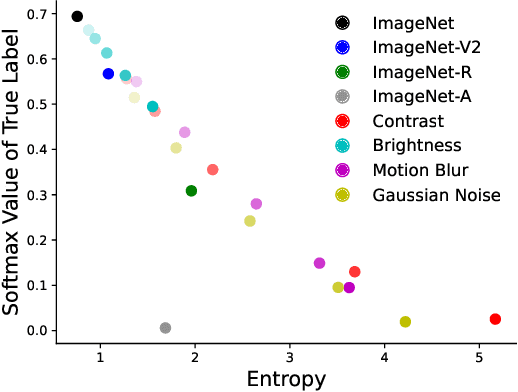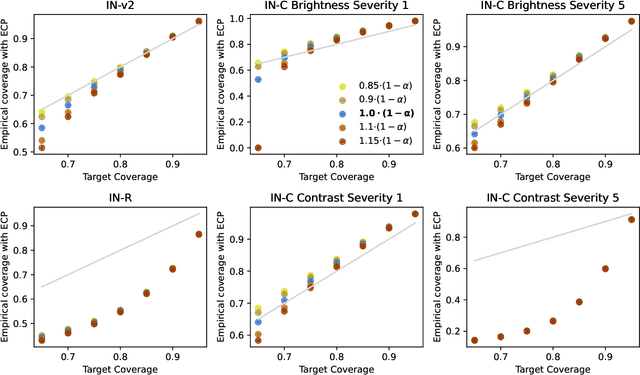Kevin Kasa
Adapting Conformal Prediction to Distribution Shifts Without Labels
Jun 03, 2024



Abstract:Conformal prediction (CP) enables machine learning models to output prediction sets with guaranteed coverage rate, assuming exchangeable data. Unfortunately, the exchangeability assumption is frequently violated due to distribution shifts in practice, and the challenge is often compounded by the lack of ground truth labels at test time. Focusing on classification in this paper, our goal is to improve the quality of CP-generated prediction sets using only unlabeled data from the test domain. This is achieved by two new methods called ECP and EACP, that adjust the score function in CP according to the base model's uncertainty on the unlabeled test data. Through extensive experiments on a number of large-scale datasets and neural network architectures, we show that our methods provide consistent improvement over existing baselines and nearly match the performance of supervised algorithms.
Empirically Validating Conformal Prediction on Modern Vision Architectures Under Distribution Shift and Long-tailed Data
Jul 03, 2023Abstract:Conformal prediction has emerged as a rigorous means of providing deep learning models with reliable uncertainty estimates and safety guarantees. Yet, its performance is known to degrade under distribution shift and long-tailed class distributions, which are often present in real world applications. Here, we characterize the performance of several post-hoc and training-based conformal prediction methods under these settings, providing the first empirical evaluation on large-scale datasets and models. We show that across numerous conformal methods and neural network families, performance greatly degrades under distribution shifts violating safety guarantees. Similarly, we show that in long-tailed settings the guarantees are frequently violated on many classes. Understanding the limitations of these methods is necessary for deployment in real world and safety-critical applications.
 Add to Chrome
Add to Chrome Add to Firefox
Add to Firefox Add to Edge
Add to Edge